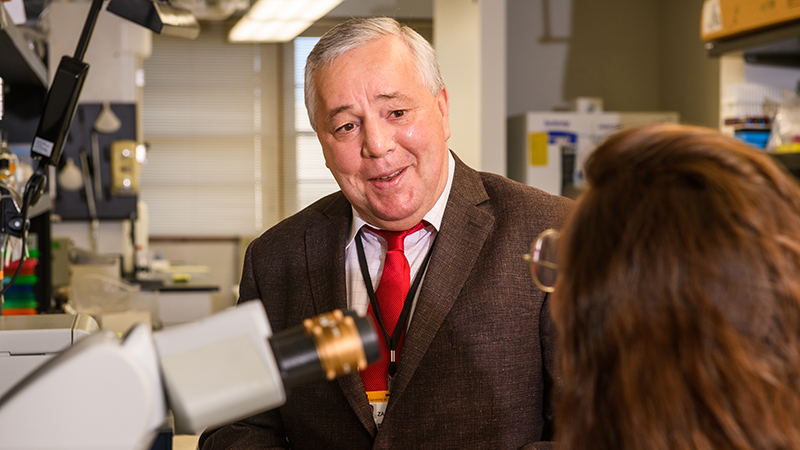
The National Academy of Inventors (NAI) has named the MU School of Medicine’s Habib Zaghouani, PhD, to its 2021 Fellows Program.
The NAI Fellows Program highlights academic inventors who have demonstrated a spirit of innovation in creating or facilitating outstanding inventions that have made a tangible impact on quality of life, economic development and the welfare of society.
Zaghouani is the J. Lavenia Edwards Endowed Chair in Pediatrics with appointments in the MU School of Medicine Departments of Molecular Microbiology and Immunology (MMI), Child Health and Neurology. He is director of the Immunity & Autoimmunity Research Laboratory, which focuses on the biology of T lymphocytes and their contribution to the development of immunity and autoimmunity. He holds 23 patents and has three that are pending.
“I’m honored to be elected as a NAI fellow,” Zaghouani said. “This recognition is a testament to the hard work of my trainees in the laboratory and the visionary guidance, relentless support and demand for excellence by former MU School of Medicine Dean William (Bill) M. Crist. We are dedicated to continuing our work to better understand the immune system as we strive to develop better treatments for autoimmune diseases such as type 1 diabetes and multiple sclerosis among other immune-mediated diseases.”
The 2021 Fellow class represents 116 research universities and governmental and nonprofit research institutes worldwide and collectively hold over 4,800 U.S. patents.
Zaghouani will officially be inducted as an NAI Fellow at the organization’s annual meeting in June. The complete list of NAI Fellows is available on the NAI website.
“The NAI Fellows Program is a prestigious honor that highlights the outstanding work of Dr. Zaghouani and his research team,” said Steven Zweig, MD, dean of the School of Medicine.
MizzouForward is a transformative, $1.5 billion long-term investment strategy in the continued research excellence of the University of Missouri. Over 10 years, MizzouForward will use existing and new resources to recruit up to 150 new tenure and tenure-track faculty to address some of society’s greatest challenges. Investments also will enhance staff to support the research mission, build and upgrade research facilities and instruments, augment support for student academic success, and retain faculty and staff through additional salary support.





